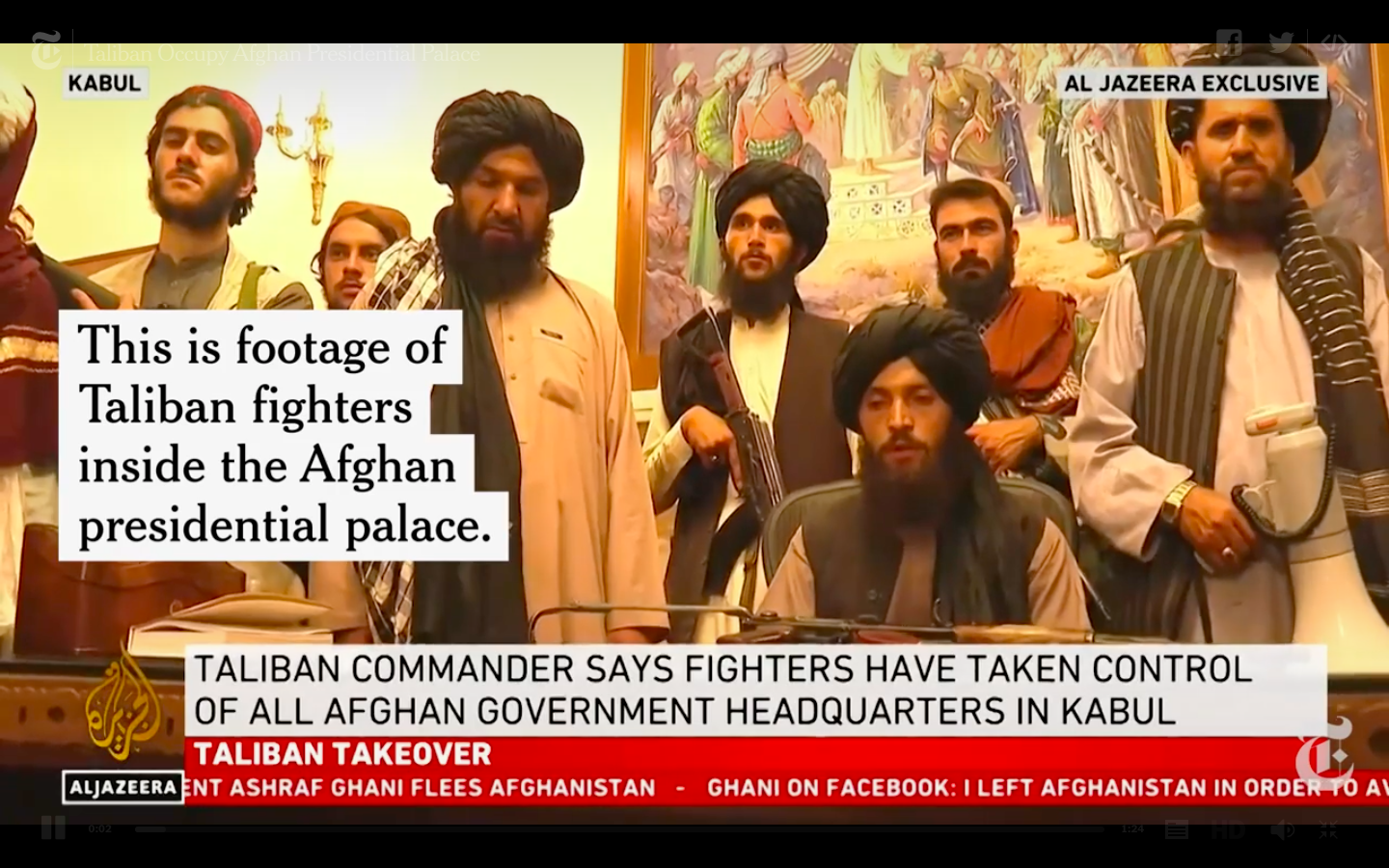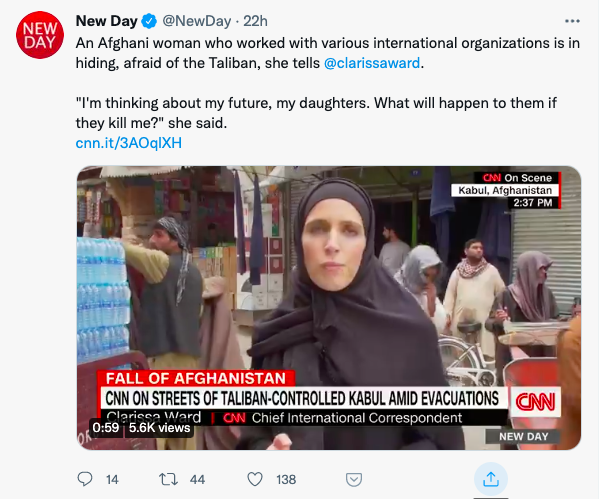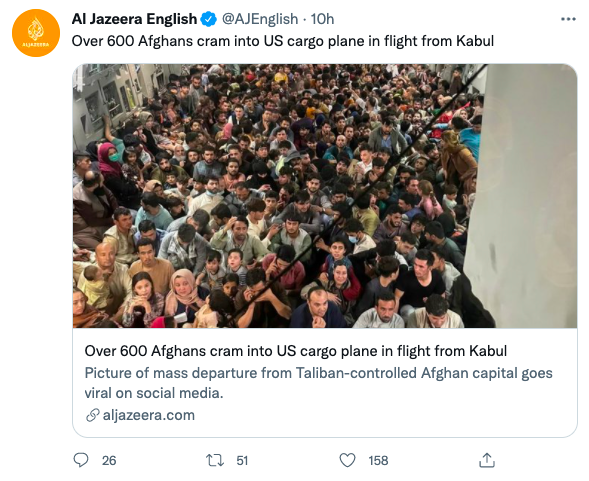Afghanistan has been top of the news these two weeks since US President Joe Biden began executing his plan to completely withdraw US troops by August 31. We reproduce this story by Tan Huey Ying of Salt&Light on what Christians in Afghanistan are facing and how we can pray for and help in this situation.
Their President fled the country. Their military abandoned bases, uniforms, even aircraft and weapons.
“We want to leave. Please, pray for us,” one Afghan woman told 65-year-old *Mong by phone in the wee hours of Monday morning (August 16), a few hours after news broke that the Taliban had wrested control of Kabul.
The women have been friends for over 28 years, Mong tells Salt&Light, ever since Mong first found herself working at a health clinic in a city in Afghanistan in 1993.
A country unravels
On the Sunday of August 15, the Taliban took over the capital, Kabul, capping off a major offensive on a government weakened by the withdrawal of the American military from April this year.
From the abandoned presidential palace, the militants issued a statement: They would soon revive Afghanistan’s former name, the “Islamic Emirate of Afghanistan”.
This name was in use between 1996 and 2001 when the Taliban held power before being ousted by the US-led invasion for providing refuge to Al-Qaeda and Osama bin Laden.

Screengrab from Al Jazeera News
Following the Taliban takeover of Kabul, droves of people soon formed at Kabul international airport, as citizens and foreigners alike attempted to flee the country – images and videos of the mayhem have been circulating online in the last two days.
Thousands camped out at the airport which US forces have secured. Men desperately clinging on to departing jets were seen falling from the sky.
Even as Taliban leaders signalled that they would not use the same hardline tactics as the previous regime, the first public protest on Aug 18 in Jalalabad was met with bullets. And today (Aug 26) the US, among other countries, has sent warnings to its citizens in Kabul to stay away from the airport because of high risk of a terrorist attack.
Fear is the prevailing sentiment on the ground, report various news outlets, including Al Jazeera, CNN and Reuters.
Hardline regime
The Taliban are known for their extremism that includes floggings, amputations and mass public executions.
The group has led a deadly insurgency against the US-backed Afghan government for nearly 20 years. Thousands of lives have been lost to suicide bombs and terror attacks in unimaginable places: an example is the massacre inside a maternity clinic in Kabul where two newborns were among the 24 killed in May of 2010.
The United Nations has recognised Afghanistan as one of the “most lethal places” to be an aid worker. “Morality police” squads from an internal agency known as the Promotion of Virtue and Elimination of Vice were dispatched to enforce hardline law.
Men had to grow beards. Girls were not allowed an education and those as young as 14 were taken away to be married off to Taliban fighters.

“As a female, you are treated as an expendable,” says Mong. She soberly recalls the public executions in Kabul’s Ghazi Stadium where soccer matches used to be held before the sport was banned.
More Christians in Afghanistan
Christians were – and still are – intensely persecuted in the country.
In the last three years, while under the coalition-supported Afghan government, Afghanistan was ranked No. 2 in the Open Doors’ World Watch List, an investigative research and annual report on the 50 most dangerous countries for Christians.
There is “no safe way” to express Christian faith in Afghanistan, the watchdog reports. The actual number of believers is unknown, but the International Christian Concern, another missions agency, estimates that there are between 10,000 to 12,000 believers in the country.
“Honour killings”, where families, clans or tribes attempt to save their honour by killing the Christian convert, are rife in both Taliban- and government-controlled areas.
Beatings and torture of Christians who are arrested or kidnapped are commonplace, so believers meet secretly in homes or other small venues. However, the past decade has seen a surge of arrests, says The Voice of the Martyrs (VOM) ministry which serves persecuted Christians worldwide.
VOM notes that there are also “more Christians in Afghanistan than there were 20 years ago”, with “believers in every single province”.
Crackdown of churches
In the last week, World Magazine reported that several house church network leaders have received threatening letters from the Taliban – even before the Taliban had cemented control of the country.
“We know where you are and what you are doing,” the letters read.
In the report, an Afghan-American pastor based in the US, who mentors house church leaders and has family in Afghanistan, said that people are being forced into hiding.
“Even those with valid visas to travel abroad can’t leave.”
Leaving the country is near impossible. Land routes to Pakistan and other neighbouring countries are heavily guarded with Taliban-controlled checkpoints.
Air travel is the sole remaining option – but even that is becoming less feasible with the Taliban’s control of Kabul preventing more people from entering the airport.
Mong’s contacts have also gone into hiding, she tells Salt&Light.
The Afghan woman to whom she spoke over the weekend has been through many regime changes: The Soviets in the 1980s pre-Taliban civil war, the first Taliban emirate from 1996-2001, and even the US invasion.

The now-famous image of Afghans fleeing Kabul, crammed into a US cargo plane
“The family has lived through all these changes and they have never wanted to leave the country,” says Mong.
This time, however, their words are: “We want to get out. Wherever we can go, we will go.”
A new era
Technological advancements and digital connectivity are playing a part.
In 2001, iPhone, Facebook and Twitter didn’t even exist, pointed out Thomas Friedman, op-ed columnist of The New York Times.
With the recent wave of digitisation in the country of digital identity cards and biometrics, news agency Reuters reports that Afghans are scrambling to delete their digital history and that various rights groups are publishing guides on how to do so.
The article also noted that, according to local media reports, “even five years ago, the Taliban was using government biometric systems to target members of the security forces, checking their fingerprints against a database.”
“I feel like it’s going to be worse now,” Mong tells Salt&Light. “When the Taliban first came, they were still ‘finding their way’.”
Mong, who has even befriended and dined with young Taliban fighters in the late 1990s, pointed out that there have been significant changes in the last two decades. One of which, she notes, is that the Taliban fighters had begun their journey fighting against corruption and injustice.
“Along the way, they have become the very things they fought against,” she says.
International observers have noted that the “post-2001 Taliban have proved to be a learning, more political organisation that is more open to the influence of external factors.”
How can we help?
Watch and pray.
The situation is still evolving and those who are familiar with the situation are still brainstorming possible solutions.
Given where things stand at the moment, it is more likely than not that meaningful assistance from those of us not directly involved can only be provided once people make it out of the country’s borders, says Mong.
The New York Times columnist Thomas Friedman draws on one of his “ironclad rules” regarding news coverage of the Middle East: “Always distinguish between the morning after and the morning after the morning after. Everything really important happens the morning after the morning after — when the full weight of history and the merciless balances of power assert themselves.”
As the situation continues to unfold, may we take up the mantle given to all of God’s people to stand in the gap and pray for the Lord to heal the land of Afghanistan and all her people.
*Name has been changed for security reasons
Pray for every soul in Afghanistan
Pray for the people of the land
- To experience the protection of God in terms of physical safety.
- For open borders, the provision of visas and safe journeys to those who are looking to leave the country.
- That God will hold back the plans of those who seek to do evil.
- For all to receive God’s provision of the daily necessities.
- For God’s deliverance from the suffering through the many wars and atrocities committed over the centuries.
Pray for foreign workers still in the country
- Safe passage for those trapped and the Spirit’s empowering for those who have chosen to stay.
- For physical protection from those out to do evil.
- For the strength and resources to do God’s work where they have been called.
- For them to be powerful testimonies of God’s love.
Pray for local believers
“Be not silent, O God of my praise! For wicked and deceitful mouths are opened against me, speaking against me with lying tongues. They encircle me with words of hate, and attack me without cause.” (Psalm 109:1-2)
- For physical safety as they seek shelter.
- For comfort and peace in a time of intense uncertainty.
- To be strengthened with bold faith.
Pray for the Taliban
“You have heard that it was said, ‘You shall love your neighbour and hate your enemy.’ But I say to you, Love your enemies and pray for those who persecute you, so that you may be sons of your Father who is in heaven.” (Matthew 5:43-45)
That the zeal of the Taliban fighters will be turned into a zeal for Jesus Christ.
Pray that the hope of the Gospel will be made known to many
“For it is for this we labor and strive, because we have fixed our hope on the living God, who is the Savior of all men, especially of believers.” (1 Timothy 4:10)
- In a time of seeming hopelessness, the light and truth of Christ will shine through.
- That as worldly governments fail, hearts will turn to Christ and find their hope and salvation in Him.
Want to do something right now for Afghanistan? Click to read what Hagar Singapore is doing for the internally displaced people in the country.
